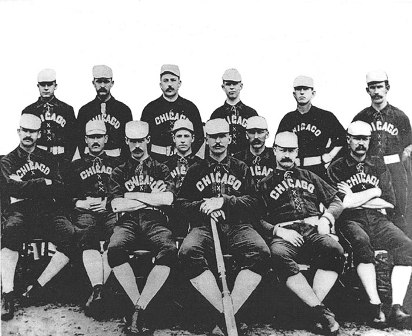Detroit Tigers Manager Hughie Jennings had an idea to improve American education. He told The Detroit Times in 1911:
“I think it pretty near time that our advanced public school educators began to think of teaching baseball history in their schools. Seriously I do.
“Baseball is America’s chief recreation, and has been for two generations. Indications are that it will live many generations more. The stars of the game are important personages to the boys and the men of today as are the big men in affairs of state and business. The boy is constantly clamoring for news of his baseball heroes, and because we have decided baseball is a clean, good sport, we encourage his interest.
“It is only lately that I have been interested in the history of the game, although it has been my means of support for years. I don’t know what it was that impelled me last winter to go digging into newspaper files for data on the antecedents of the game, but I do know this: I’m mighty sorry I didn’t get the idea before. For nothing was more interesting.”
Jennings’ conclusions would likely have disappointed Albert Spalding and the members of the Mills Commission, which advanced the Doubleday myth:
“Of course I had always known in a superficial way something about the origin of baseball and about the men who figured prominently in it during its infancy; and the men who have brought it up to the standards of today are men of my day and age, but I had never before made a consistent effort to learn just what was what in baseball history. I was pained and surprised , when I started at it, to find that there does not exist a history of the game which is so thoroughly prepared that it might be put into schools as a text book. Before this idea of mine can be put into effect, somebody has got to write a real baseball history.
“In my research last winter, for instance, I I confirmed my old understanding that baseball as we know it today is sort of a sublimated ‘one-old-cat’ or ‘rounders’ as they used to call it. The first game of baseball, with nine men on a side, was played in Hoboken, NJ in 1845.”
Jennings quoted Alexander Cartwright’s 1845 rules and made no mention of Cooperstown or a Civil War general, putting squarely in the camp of “The Father of Baseball” on the game’s origins.
The Tigers’ manager also said, according to his research “The first ball was made from sections of an old arctic shoe wound with woolen string and covered with coarse cowhide.”



Well, of course, they weren’t Cartwright’s rules he quoted, but the Knickerbocker rules.
Perhaps I should have been more precise. “The Knickerbocker Rules adopted and developed by Alexander Cartwright.”